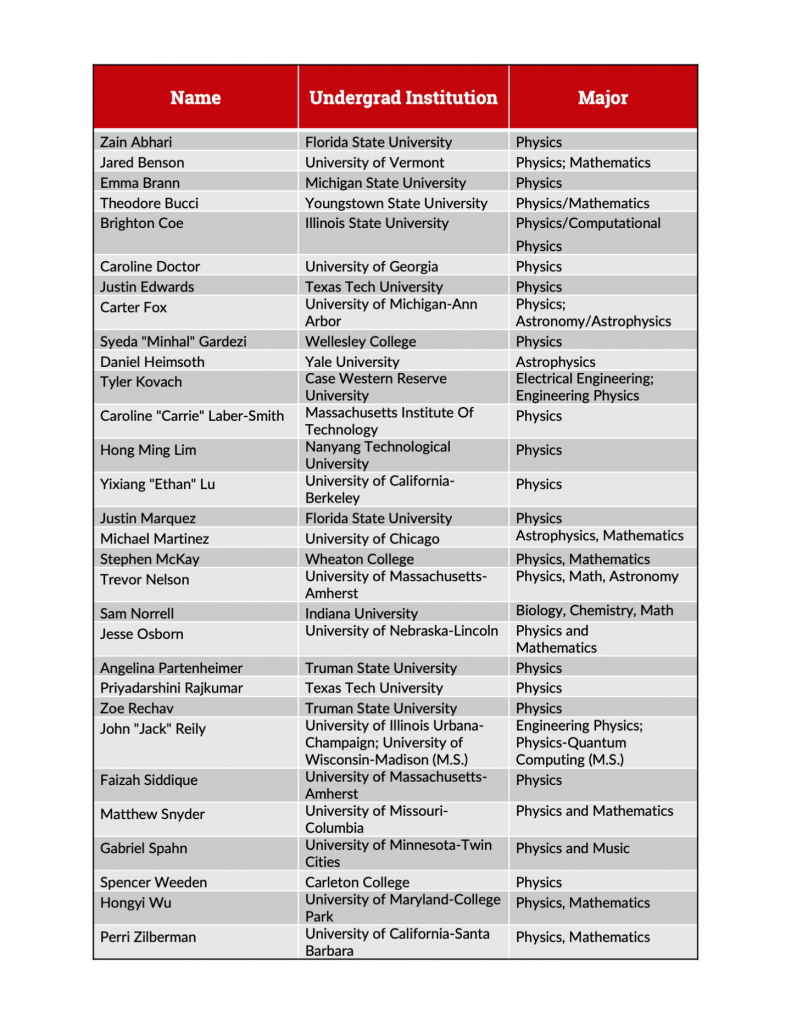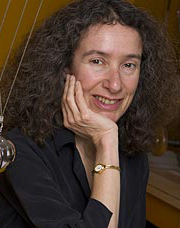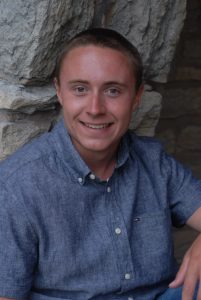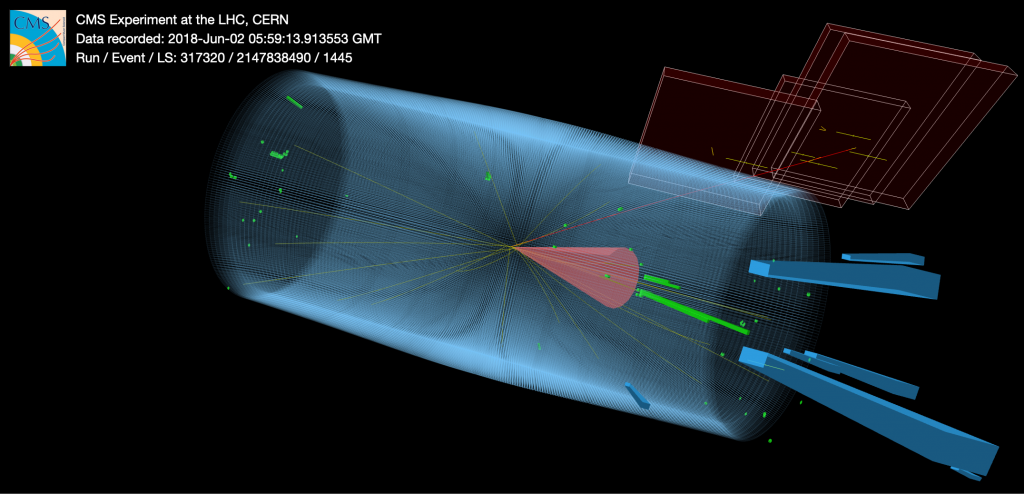After record-breaking application numbers and the most unique recruiting season yet, the Department of Physics is pleased to introduce the 30 students of the incoming Ph.D. class of 2021!
“This year’s incoming Ph.D. class is a remarkably strong and diverse cohort who have overcome truly historic obstacles to join us,” says Ph.D. admissions committee chair, Prof. Shimon Kolkowitz. “I couldn’t be more excited to welcome them to our department and to witness the great work they will accomplish in their time here.”
602 students applied for one of 91 admissions spots, the most applications the department has received in at least the past decade (based on available graduate school data).
Some highlights of the incoming class include:
- Students coming from 18 U.S. states and three other countries (China, India, and Malaysia)
- 22 expressing a preference for experiment, with the rest expressing a preference for theory only, or either/undecided
- Eight women
- Three Advanced Opportunity Fellowship (AOF) eligible students
- Two students who were named 2021 NSF Graduate Research Fellows
This year’s incoming class is also the first to ever participate in “Virtual Visit Days,” thanks to the COVID-19 pandemic. Though perhaps not as exciting as visiting campus in person, admitted students could still meet with faculty to discuss research opportunities, participate in discussions and virtual games nights with current students, and watch videos — many newly-created just for these visits — about the University, the city of Madison, and research in our department.
“Thank you to all the prospective students for their engagement and enthusiasm throughout the admissions and virtual visit process,” says Michelle Holland, graduate program coordinator. “We are beyond thrilled to welcome the Class of 2021 to the Physics Ph.D. Program at UW–Madison as we find our ‘new normal’ in being together on campus this fall.”
The department would like to send a huge round of applause to everyone who participated in recruitment this year, especially current graduate students on the recruitment committee: Trevor Oxholm, Abigail Shearrow, Kunal Sanwalka, Susmita Mondal, Winnie Wang. We also thank graduate program coordinators Michelle Holland and Jackson Kennedy for organizing and running the virtual visit days, Dan Bradley for once again providing IT solutions to help the admissions process and visit days run smoothly, and Sarah Perdue for website development and video production.
The department also thanks the Ph.D. admissions committee for their thorough evaluation of the applicants. In addition to Kolkowitz, the committee members are Profs. Keith Bechtol, Stas Boldyrev, Victor Brar, Mark Eriksson, Ke Fang, and Jeff Parker.
One student accepted our admissions offer but has deferred to 2022.




